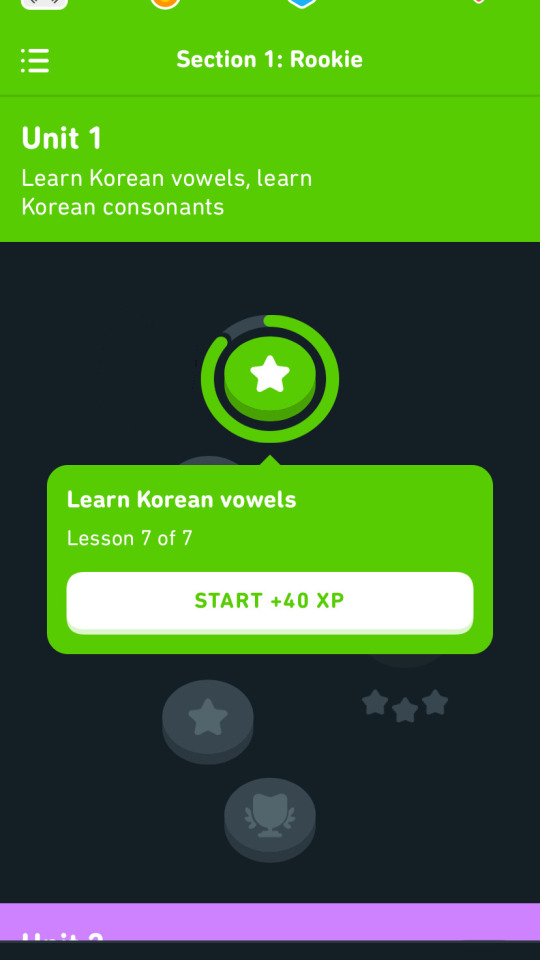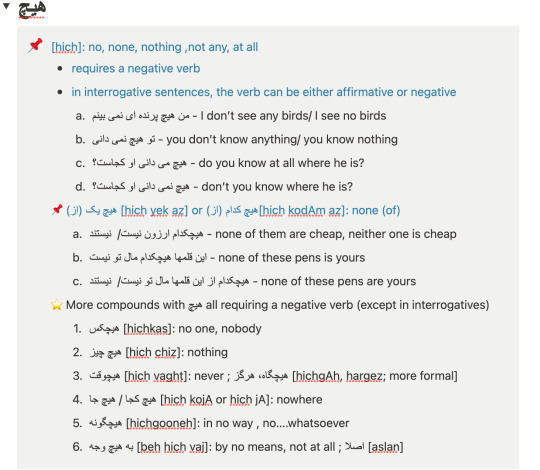#tongueblr
Text
Käärijä - Cha Cha Cha vocabulary in Finnish

Viikko - week
Päivä - day
Mielenkiinto - interest
Rata - nightlife, going to bars, drinking (esp. during the weekend)
Ilta - evening
Aika - time
Ulkokuori - shell
Juoma - drink, beverage
Huominen - tomorrow
Tuoppi - pint
Huoli - worry
Tuoli - chair, seat
Naamataulu - face
Parketti - (dance)floor
Maailma - world
Samppanja - champagne
Silmä - eye
Puhe - speech
Puoli - side
Arki - everyday life; weekday, working day
Mies - man
Rankka - exhausting, hard
Pitkä - long
Nuori - young
Jäinen - icy
Sekaisin - messed up
Vapaa - free
Vakava - serious
Toinen - other, another
Olla - to be; to have
Kumota - to down (a drink)
Tuhota - to destroy, to demolish
Pitää kiinni - to hold
Miettiä - to think
Tarttua kiinni - to grab
Haluta - to want
Jatkaa - to continue
Pysyä - to stay
Kutsua - to invite, to call
Olla lukossa - to be frozen
Tulla - to come
Lähteä - to leave, to go
Tanssia - to dance
Pelätä - to be afraid of, to be scared of
Kaataa - to pour
Karsastaa - to have eyes that are turned in different directions
Sammaltaa - to slur
Saada valta - to get (power) over
Paljon - a lot, much
Takana - behind
Vielä - still
Kaksin käsin - with two hands
Niin kuin, “niinku” - like
Kunnes - until
Ei enää - no more
Muutama - a few
Päälle - on
Tänään - today
Tämä, “tää” - this
Minä, “mä” - I
Se - it, that
Ja - and
Ei - no
Kun, “ku” - when
Silti - still
Vielä - still
Nyt - now
Jo - already
Ei laisinkaan - not at all
#Finnish#suomi#polyglot#languages#langblr#languageblr#language blog#langspo#langtwt#tongueblr#studyblr#vocab#Käärijä#lyrics#ESC#Eurovision#Eurovision Song Contest#music
460 notes
·
View notes
Text
9 number things you might not know as a foreign speaker of Danish
This is a mishmash of both cultural things and linguistic things. The idea for this post appeared in my head at 3 am so bear with me. As for the lack of links, I am adding them in a reblog to try to avoid tumblr nerfing my post.
1) Quarters – how to measure time
In Denmark, we love measuring time in quarters of an hour. We love it so much we don't care about specifying the kind of quarter, it's just kvarter (itk.). Generally, we tend to use kvarter mostly just when speaking about 15 or 45 minutes, but it does go further than that. So here's a quick guide on how to tell time other than just doing as you would in English:
15 minutes – et kvarter
30 minutes – en halv time
45 minutes – tre kvarter
75 minutes/1h 15m – en time og et kvarter · fem kvarter
90 minutes/1h 30m – halvanden time (see 2)
105 minutes/1h 45m – en time og tre kvarter
and so forth, if you care to. Using fem kvarter is uncommon but acceptable, but never go further than that using just quarters of an hour. I would say that once you pass 2 hrs, I most commonly hear people starting to just count hours and minutes as you would in English.
2) Halvanden – half second
An archaic way of saying 'one and a half' that just stuck for some reason. This is the preferred way to say 'one and a half ' for most people. No, this is not a joke.
Halvanden, 'half second' means halfway between one and two. Until quite recently (we're talking less than a century) halvtredje (2.5), halvfjerde (3.5), etc. were also in common use, but they have disappeared so rapidly that most current speakers will have absolutely no idea what the hell you're talking about. However, the ghosts of this way of counting live on in the numbers halvtreds (50), halvfjerds (70), and halvfems (90). You can read more about that in my old post about Danish numbers (see reblogs).
3) Week 42
We use week numbers! Week 1 is the first week in the new year to contain a Thursday, as we count weeks as Monday through Sunday. You don't necessarily need to know what week it is all the time, but a lot of adults use weeks in place of specific dates. I am forever thankful to ugenr.dk (you just type in a date and it tells you what week it is in or vice versa).
Important weeks are:
Week 7/8 – winter break for kids in primary and secondary school (not to be confused with Christmas break). It varies depending on municipality whether it's week 7 or 8. Lots of people go skiing these weeks.
Week 26 through 31 – summer break is usually during these weeks. All students in primary and secondary school, as well as university students and students doing professional bachelor's degrees and the like have these weeks off from school.
Week 42 – arguably the most important week. All students mentioned above have this week off from school. It's autumn break and it's ALWAYS week 42 and JUST week 42. Originally, it was to allow students in rural areas help their parents harvest potatoes (a nickname for autumn break is kartoffelferien 'the potato break'), and we just kept it.
4) DD-MM-(YY)YY
If you write dates as MM-DD people will think you're a lunatic. Don't, unless you're specifically talking about 9/11, colloquially referred to as just 9/11 (nine-eleven, as you would say it in English).
5) 00:00
Denmark, like a lot of other European countries, uses 24hr clocks. Obviously, analogue clocks and watches are common, and it's perfectly ok to say stuff like klokken fire om eftermiddagen 'four o'clock in the afternoon' or klokken otte om aftenen 'eight o'clock in the evening', but you are expected to just know that 21:00 is the same as 9 PM. You can also say klokken toogtyve 'twenty-two o'clock', and it's quite normal to ask for clarification of whether people are talking AM or PM by saying stuff like klokken elleve eller klokken treogtyve? 'eleven o'clock or twenty-three o'clock?'. You cannot use AM and PM when speaking or writing Danish. The day begins at midnight; 00:00.
Don't worry yourself too much over this. Everyone occasionally forgets that 19:00 is in fact 7 o'clock and not 9 o'clock.
6) Halv to – half one
When you're measuring half hours in Danish, you're always measuring towards the next whole number. It's never half past, it's always half to. As such, half (past) one is halv to 'half two' in Danish.
7) Grades (years)
This is an ultra quick rundown of the Danish school system. School is mandatory for 10 years and homeschooling is allowed. This covers primary and lower secondary school.
Most people start school the year they turn 6. My birthday is in April, so I was 6 when I stated school, my sister's birthday is in September, so she was 5.
The mandatory grades are as follows. The ages are all possibly ages of a child attending that grade (not accounting for starting school early or late):
Indskolingen, grades 0-3
0. klasse/børnehaveklasse - 5-7 yo
1. klasse – 6-8 yo
2. klasse – 7-9 yo
3. klasse – 8-10 yo
Mellemtrinnet, grades 4-6
4. klasse – 9-11 yo
5. klasse – 10-12 yo
6. klasse – 11-13 yo
Overbygningen/udskolingen, grades 7-9
7. klasse – 12-14 yo
8. klasse - 13-15 yo
9. klasse - 14-16 yo
Some may choose to do 10. klasse, if they feel like they need more schooling or maybe if they're attending an efterskole.
Once they've finished their mandatory schooling, a lot of Danes choose to attend upper secondary school. You can do it in 3 years (stx, hhx, htx, and eux) or 2 years (hf, 2-årigt studenterkursus). Special circumstances like being an elite level athlete or attending MGK (preparation for attending a music conservatoire) may lead to people spending 4 years in upper secondary. Hf often sees a lot of adult students.
Gymnasium/HF, the grades are said as [ordinal number, letter(s)]
1.g (15-17 yo)/1.hf
2.g (16-18 yo)/2.hf
3.g (17-19 yo)
8) Grades (performance)
Danish schools have a 7-grade system. It's called 7-trinskalaen, and each grade corresponds to an ECTS grade (in fact, it's specifically designed for compatibility, and a lot of people above the age of 30 miss the old scale). Generally, students don't get grades until 7th grade. The grades are:
12 – A
10 – B
7 – C
4 – D
02 – E
00 – Fx
-3 – F
If you are not familiar with the ECTS system, E, Danish 02, is the lowest passing grade. The intention behind the 0's in 02 and 00 is to make it impossible for the students to "change" their grade by just adding 1 in front of the grade, but the 0's are in fact also said out loud.
9) Ordinal numbers
Ordinal numbers are written as a number followed by a full stop. You do not capitalise the first letter of any word following the full stop (see 7) even though MS Word will try to convince you it's the right thing to do.
You can read a lot more about numbers on the Danish numbers post (again, in a reblog), but the basics that might not be covered by formal learning materials are:
nulte zeroth. This literally only exists for 0. klasse and for numbers to the zeroth power.
fyrretyvende/fyrrende* – fortieth
halvtredsindstyvende/halvtredsende* – fiftieth
tresindstyvende/tressende* – sixtieth
halvfjerdsindstyvende/halvfjerdsende* – seventieth
firsindstyvende/firsende* – eightieth
halvfemsindstyvende/halvfemsende* – ninetieth
The forms marked with an asterisk are largely informal spoken language to the degree that they are even considered wrong by some. Generally, they are accepted as the standard forms among the younger generations, but be careful when talking to people above the age of ~45.
#original#danish#danish language#danish langblr#langblr#tongueblr#danish numbers#school#time#dates#numbers#uhhh i think thats it
56 notes
·
View notes
Text
No zero days in 2023 langblr challenge
The idea is to spend every day of 2023 engaging in both of my languages (Icelandic and German) every single day. Even if it's just a few minutes on an app or a short video, I have to spend at least a little bit of time with each of my languages. The underlying concept is to force myself to develop some sort of routine.
I will be filling out a google sheet-based heatmap to visualize my progress, which can be found here (you can make a copy!), and I'll post screenshots of it every day, as well as telling what I did that day in both languages!
If you want to participate with me, you can! You don't have to do it for the whole year, you can pick a month or a season or whatever feels right. The tag I'll be using will be #no zero days 2023 langblr. You can tag me in your posts as well, I'm excited to see your progress!
Catch me in January :)
#no zero days 2023 langblr#langblr#studyblr#polyglot#language learning#langblr challenge#no zero days#tongueblr#icelandic#icelandic langblr#íslenska#german#german langblr#deutsch
274 notes
·
View notes
Text



day 15 of 30 // 工作好,玩好 🐯🐹 (roughly: work hard, play hard)
new daily language targets for Korean, Chinese, Japanese based on halfway-mark results:
1 vocabulary lesson — and bring back the vocabulary lists + practice sentences!! it was hard to keep up with and retain them when i was doing so many lessons in one day, but i think this will be better ☺️
1 comprehensible input sample — plan it out the day before to prevent getting distracted 🙈
1 writing practice — alternate between talking about my day/week, likes/dislikes/hobbies to keep things spicy ✨🌶️ (but for Japanese just talk about whatever i'm able to 😅)
today's accomplishments 💯
🧠 aced Clinical Psych quiz
🧠 aced Cognitive Psych quiz
🧠 write Cognitive Psych assignment
🥰 physiotherapy exercises (morning set)
🥰 rowing (while listing to a ~3m song)
🙊 Watch 슈취타 랑 정국 (Korean interview)
🙊 Japanese vocabulary lesson
🙊 Chinese vocabulary lesson
🥰 walk (2h)
🥰 physiotherapy exercises (evening set)
🙊 Korean vocabulary lesson
🙊 Watch 田中さん (Japanese short story)
🙊 Watch Exclusive Fairytale clip (Chinese drama)
❤️ writing practice + vocabulary + practice sentences under the cut if you're interested ☺️ have a lovely day 🌷

한국오로 쓰다 ✍️
지금 난 반말 말해요 왜냐면 주말 입니다. 👯♀️ 네, 내 시간을 상자들으에 놓아합니다. ⌚⌛ 난 좋아요. 난 이런 사람니다. 🤓 많이 많이 조직해요. 🗃️ 그건 난 행복하게 합니다. ☺️ 난 설라요. 💃 근데 난 떨리다 왜냐면 이 주말 거의 끝나니다. 끝 안원해요! 🥺
(I'll speak casually now since it's the weekend. 👯♀️ Yes, I put my time into boxes. ⌚⌛ I like it. I am this kind of person. I organize a lot. 🗃️ That makes me happy. I'm excited. 💃 But I'm nervous because this weekend is almost over. I don't want it to end! 🥺)
💌: i have no idea how "time-boxing" translates, so i just said "putting my time in boxes" to approximate the concept 🤡 also because those are the only words i know to express this 😆
中国写 ✍️
昨天下午我和我的家人说话和我也用我的手机 🙈 但我听很好了!我写汉语和日本语。我说我的学。我的爸爸问问题。我说工作是不好了。他说 "不担心"。我感谢但我还是担心了 😅
(Yesterday afternoon, I talk with my family and I also use my phone 🙈 but I listen well! I write Chinese and Japanese. I talk about what I learn. My dad asks questions. I talk about how work is not good. He says "Don't worry." I'm grateful but I still worry 😅)
💌: i had to look up many words here, but using them makes them more memorable! (hopefully) 🤞
日本語 ✍️
私の家族は大きです。私の父とても頭いい。私の母とても優し。私の妹もとても頭いい。私の弟たちはにぎやかとうるさい。
(My family is big. My dad is very smart. My mom is very nice. My younger sister is very smart. My younger brothers are lively and noisy.)
💌: One day, I will be able to write like someone older than a first grader... Actually, some first graders might write better than this 😂
한국의 단어 🙊
갑자기 — suddenly (aaah, i know this is something that's said a lot and i finally know how to say it, i'm so happy!! ☺️) — 갑자기, 이 단어 랑 신규 세상 열어합니다! 🌏😂 (Suddenly, I'm opening a new world with this word!)
솔직(히) — honest(ly) — 솔직히, 한글은 아직도 힘들어... (Honestly, Hangul is still hard...)
사실, "아직도" 도 신규 단어... "신규" 도... (Actually, "still" is also a new word... "new" also...) — 언제 것어 다 신규이면 하고 언제 것이 많이 바끌이면 아직도 너 랑 (probably terrible grammar but: when everything is new and when things change a lot, i'm still with you)
당당 — confident — 난 당당 할수있어요! (I can be confident!)
시에 — time, can use 시 after a number to mean "o'clock"
깹/깨다 — wake up
청소 — clean
새벽 — dawn/daybreak
교실 — classroom
대화 — dialogue
언제 새벽에 다섯 시 깹니다, 저는 청소합니다 (When I wake up at 5 am, I clean)
우리는 오후 열두 시 교실에 대화 (We talk in the classroom at 12 pm)
汉语字 🙊
我不知道 用 "汉语" 还是 用 "中国", 谢谢明白 (I don't know which word for "Chinese" to use, thank you for understanding)
午饭 — lunch — 我在商店吃午饭 (I eat lunch at the shop/store)
地铁 — subway — 我知道这个地铁。这个去酒店。我们坐这个地铁。(I know this subway. This goes to the hotel. Let's take this subway.)
坐 — take (as in to take a mode of transportation)
蔬菜 — vegetables — 什么蔬菜最健康的?(What vegetables are the healthiest?)
最 (most) — 我是最好的! (I'm the best!)
世界 — world — 我爱这个世界 (I love this world)
兄弟姐妹 — siblings — 我有三兄弟姐妹 (I have 3 siblings)
嚼 — chew (the pin yin does not follow how it's pronounced?? it's like "jue"??)
日本語 🙊
空港 — airport — 私は空港好きです。空港はかっこいい。(I like airports. Airports are cool.)
地下鉄 — subway — 私は地下鉄ここです。(I'm here on the subway.)
よく — often — 私はよくおこったです (I often get angry)
今日 — today
部屋 — room
汚い — dirty
だから — so/that's why
それから — after that/then
頑張ります — I'll do my best
終わり — the end
今日私は私の部屋いつもにここです。(Today, I'm here in my room.)
私の部屋はよく汚いそれから私はそこじゃないです。(My room is often dirty, so that's why I am not there.)
今日頑張ります (Today, I'll do my best)
今日は終わり (Today is over)
#studyblr#seventeen#astudentslifebuoy#hoshi#horanghae#langblr#psychblr#student life#university#chinese langblr#korean langblr#japanese langblr#work hard#play hard#study goals#study notes#tongueblr#study inspiration#studyspo#study aesthetic#30 days of productivity#zesty's life#study motivation#productivity#100 days of productivity#100 days of self discipline#100 days of studying#self improvement#self development#self empowerment
22 notes
·
View notes
Text
introduction 🌸
welcome to my blog!
i'm colette
i’m interested in learning russian & german
feel free to message me or tag me in things, i love to talk!
interests:
old movies
languages
why studyblr:
i hate studying and reading, so i am trying to motivate myself to do those things by making this blog
since i want to learn a new language, i would love to collect resources on langblr and document my progress
tagging studyblr/langblr blogs for exposure:
@fantomethread @learnelle @academia-core @frenchiepal @notetaeker @greenstudies @starrystvdy @oneanxiousstudybuddy @problematicprocrastinator @fluencylevelfrench @linguenuvolose @studynostalgic @shlrleystudies
#langblr#studyblr#studying#languageblr#language blog#studyspo#langspo#tongueblr#polyglot#langblog#light academia#dark academia
36 notes
·
View notes
Text
Self-Learning Troubles
I have for a long time had troubles with learning languages by myself. I was doing Duolingo courses for German and the way I was doing them probably contributed to how I was able to maximize my time learning and also maximize my recall afterwards. Back in 2019, I was doing a tech internship and when I would go on my lovely state-mandated breaks (oh how I miss them now that I've moved to a state that doesn't have them), I would take the time to do some German Duolingo lessons (this was before the re-tool to make it more like the CEFR scale, obviously, if that makes a difference; I don't believe it would but this is an aside just for your information; I have digressed, anyway...). Of course, my life has much less structure now than it did then (plus those breaks at work are now non-existence because different state laws so), so I don't think I'd be able to do something similar.
I have since tried to just be a sponge for the languages that I'm learning. Listening to music in the language, attempting to read things in the language, and continuing to say to myself that I'll make a goalpost of trying to take a certification exam for the language that I would then have to study for and eventually hope to pass. I've been looking at said exam for German for a while now, so you can guess how that has gone.
My ADHD and other relevant neurodivergencies make it difficult for me to learn things the normal way, and I don't think there's a way to replicate the way I learned ASL (where I would often watch interpreters and listen to what was being interpreted and attempt to pick up on signs; I have actually attempted to look into this, although the answers that I got were basically "you could try to do it, but I doubt you'll get good results out of it"). Another reason that would be difficult is that I took a class for ASL where we were only allowed to use ASL during lecture hours. That added on the pressure of being graded and since I graduated university two years ago, that definitely won't work.
Tbh I don't know why I decided to write this post. I'd love to be able to study languages daily and make some kind of routine where I could sit down (or probably more accurately, carve time out of my busy work schedule) and practice/learn the languages I'm learning at the time. I feel like I haven't found the right method for me. It's waiting out there somewhere, and I just have to find it. All of the conventional methods haven't worked for me as of yet, so I guess I keep searching.
This is a jumble of word salad, and if you'd like to add a proverbial salad dressing to help me out, feel free. Or don't; this is the free internet, and I have no say in what you do with it.
#langblr#tongueblr#studyblr#languages#language learning#studying#multilingual#learning languages#polyglot#aspiring polyglot#language#adhd#adhd problems#neurodivergent#neurodiversity#please help i feel like learning languages while nd is infinitely harder
36 notes
·
View notes
Text

Lmao look
#yes i will desapear for ages and just show up to share duo wrapped#studyblr#langblr#language learning#language#tongueblr
18 notes
·
View notes
Text
10 notes
·
View notes
Text
Reading Practice “Wie aus Furcht Märchen wurden: Der deutsche Wald und seine Fabelwesen“
der Märchenwald - fairy forest
der Volksglaube - folk belief, folk religion
der Aberglaube - superstition
der Holzfäller - lumberjack
der Schreiner - carpenter
der Hain - grove
die Furcht - fright
die Eiche - oak
die Baumwurzel - tree root
die Gebrüder Grimm - the Borthers Grimm
die Gestalt - shape, figure
die Schneiderin - female tailor
die Wandlung - change
die Hexe - witch
das Märchen - fairy tale
das Mittelalter - the Middle Ages
das Grauen - horror, terror
das Gespenst - ghost
das Faszinosum - an object of fascination
das Zufluchtsort - shelter
jemanden beflügeln - to inspire someone
jemanden überlisten - to out-think someone
erdenken - to think up sth
jemanden erschrecken - to frighten someone
sich verlaufen - to get lost somewhere
jemanden in die Irre führen - to lead someone astray
beklemmend - depressive, opressive
urtümlich - old, primeval
volkstümlich - folk (adjective)
träumerisch - dreamy
menschenähnlich - menlike
numinos - eerie yet divine, numinous
jemandem wohlgesonnen - symphatetic towards smn
zwielichtig - false, two-faced
geschweige denn - (conjungtion) never mind
link to the article

#German#advanced german#german vocab#German Vocabulary#daily german#langblr#tongueblr#language learning#nue
182 notes
·
View notes
Text
just started the korean duolingo course!

let’s see how long i can keep up with this.
also, since all i really needed was a refresher on hangul i might just grab my textbook already (korean grammar in use) and start studying some basic grammar and vocab.
can’t wait to start learning!
#langblr#language#languageblr#languages#studyblr#tongueblr#korean#korea#south korea#polyglot#language learning#learning korean#duolingo
18 notes
·
View notes
Link

Attention French langblr: I host a film discussion group through Duolingo events. Whether or not you’re interested in attending, I created a support tumblr with articles, pictures, links, etc, about all the movies we watch. I thought it might interest some of you!
#french langblr#langblr#learning french#french film#apprendre le français#tongueblr#langspo#studyspo#studyblr#language learning#french new wave#nouvelle vague#francais
63 notes
·
View notes
Text
Comeback & re-introduction

Hi! I disappeared around October last year, but I'm back now and thought I should re-introduce myself!
My name is Essi, I'm from Finland and I'm turning 29 (on March 6th). I'm a university student and I major in German language & culture and minor in communications and Japanese language & culture. My native language is Finnish and my target languages are English, Japanese, Swedish, German and Arabic. I'm also interested in linguistics, especially historical linguistics, sociolinguistics, psycholinguistics, language revitalization and (second-)language acquisition. Nice to meet you!
#tealingual#polyglot#languages#langblr#languageblr#language blog#langspo#langtwt#tongueblr#studyblr#lingblr#linguist#linguistics
59 notes
·
View notes
Text
How to articulate your emotions in Danish
WARNING: LONG POST AHEAD
Literal years ago, I got an ask about how to talk about emotions in Danish. I was never really entirely sure, what the person was asking about, but I recently had the idea to just flat out translate one of those "how to identify which emotion you're experiencing" charts. So here goes nothing
Please note: all of these are approximations, and a lot of the words that are used to describe the same general feeling are in fact more or less interchangeable, as is the case with the emotion chart.
This is the chart I used:

[ID in alt text]
bange - fearful
noun: frygt - fear
bange, frygtsom, ræd - scared
hjælpeløs - helpless
skræmt, rædselsslagen - frightened
nervøs, ængstelig - anxious
overvældet - overwhelmed
bekymret - worried
usikker - insecure
utilstrækkelig - inadequate
underlegen, mindreværdig - inferior
svag - weak
værdiløs - worthless
ubetydelig, betydningsløs - insignificant
afvist - rejected
holdt udenfor, ekskluderet - excluded
forfulgt - persecuted
truet - threatened
nervøs - nervous
udsat - exposed
sur - angry
noun: vrede - anger
skuffet, svigtet - let down
forrådt - betrayed
forurettet - resentful
ydmyget - humiliated
ikke føle sig respekteret - feel disrespected
gjort nar ad, latterliggjort - ridiculed
bitter - bitter
forarget - indignant
krænket - violated
vred - mad
rasende - furious
jaloux - jealous
aggressiv - aggressive
provokeret - provoked
hostile - fjendtlig
frustreret - frustrated
arrig - infuriated
irriteret - annoyed
fjern - distant
tilbagetrukken/tilbagetrukket - withdrawn
følelsesløs, følelsesforladt - numb
kritisk - critical
skeptisk - sceptical
affejende, afvisende - dismissive
frastødt - disgusted
noun: afsky - disgust
misbilligende - disapproving
fordømmende - judgemental
pinligt berørt - embarrassed
skuffet - disappointed
forfærdet - appalled
væmmes (verb, reflexive) - to be revolted
e.g. jeg væmmes ved lugten af fisk 'I am revolted by the smell of fish'
frygtelig - awful
kvalm - nauseated
foragtelig - detestable
frastødt - repelled
forfærdet - horrified
tøvende - hesitant
ked af det - sad
noun: bedrøvelse, sorg - sadness, sorrow
såret - hurt
flov - embarrassed
skuffet - disappointed
deprimeret*, nedtryk - depressed
mindreværdig - inferior
tom, følelsesforladt - empty
*while deprimeret like English depressed primarily should be used in relation to a medical diagnosis of depression, it is also used as a synonym of nedtrykt (literally ned 'down, de' + trykt 'pressed') in the vernacular
skyldig - guilty
fortrydende, skyldbetynget, angerfuld - remorseful
skamfuld - ashamed
fortvivlelse - despair
adj: fortvivlet - despairing
sorg - grief
adj: sorgfuld, sorgramt, sørgende - grief-stricken, grieving
magtesløs - powerless
sårbar - vulnerable
gjort til offer, offergjort - victimised
skrøbelig - fragile
ensom - lonely
isoleret - isolated
efterladt - abandoned
glad - happy
noun: glæde, lykke - happiness
legesyg, legende - playful
ophidset - aroused
fræk - cheeky
tilfreds - content
fri - free
lykkelig, glad - joyful
interesseret - interested
nysgerrig - curious
videbegærlig - inquisitive
stolt - proud
succesfuld, succesrig - succesful
selvsikker - confident
accepteret - accepted
respekteret - respected
værdsat - valued
stærk, magtfuld - powerful
modig - courageous
kreativ - creative
fredfyldt - peaceful
kærlig - loving
taknemmelig - thankful
tillidsfuld - trusting
følsom, sensitiv - sensitiv
intim, tæt - intimate
optimistisk - optimistic
håbefuld - hopeful
inspireret - inspired
overrasket - surprised
noun: overraskelse - surprise
forskrækket - startled
chokeret - shocked
forfærdet - dismayed
forvirret - confused
desillusioneret - disillusioned
perpleks - perplexed
forbløffet - amazed
forbavset - astonished
ærefrygt - awe
begejstret, spændt - excited
ivrig - eager
energisk - energetic
dårligt - bad
kede sig (verb, reflexive) - to be bored
e.g. jeg keder mig 'I am bored'
ligeglad - indifferent
apatisk - apathetic
travl - busy
presset - pressured
forhastet - rushed
stresset - stressed
overvældet - overwhelmed
ude af kontrol - out of control
træt - tired
søvnig - sleepy
ufokuseret - unfocussed
#danish#danish language#danish langblr#emotions#langblr#tongueblr#vocab list#vocabulary list#danish vocabulary#original#this is a little rushed (hæhæ) because i saw this chart and then blacked out and spent two hours on this#and am posting it without proof reading#but fuck it amirite lads
21 notes
·
View notes
Text
Month 4 of No Zero Days 2023: Review
(as usual, criminally late)
I have made an executive decision to stop tracking German. My life is really stressful at the moment and it's really too much.
I'm slowly getting into reading in Icelandic. It's a slow process, but I'm currently in the middle of a novel, which is really exciting!
I might consider posting more frequently after I survive my exams.

8 notes
·
View notes
Text



day 11 of 30 // 쿵치팍치 (gibberish)
"wednesday's child is full of woe," indeed... i was so thrown off my game today. it's not even that i feel i can't get back on track, i know i can — i just don't like that i'm in a position right now where i can be so easily thrown.
ok, time to focus on simple but sure happiness, let's go! 😇
it's Going Seventeen day! 📺
my psych prof said "great question" every time i asked 😁🎓 (and i know he doesn't say that to everyone) (and he gave helpful answers!)
과자 (snacks) 🐷
despite everything, i still love learning to express myself in different languages ☺️ i'm certainly not perfect but i enjoy it so much 💕
today's accomplishments 💯
🧠 attend Clinical Psych Q&A
🧠 revise Clinical Psych assignment
🥰 physiotherapy exercises (morning afternoon set)
🥰 squats, glute bridge, leg lifts (1m each)
🙊 completed Japanese lesson (3x)
🙊 completed Chinese lesson (2x)
🙊 completed Korean lesson (2x)
🧠 write Cognitive Psych assignment
🥰 physiotherapy exercises (evening set)
❤️ vocabulary + Korean and Chinese rants about work writing practice under the cut if you're interested ☺️ have a lovely day! 🌷

Korean writing practice ✍️
오늘 제 일고 또 싫어... 너무 피곤하다 😭 하지만 저는 행복이 원해... 후우우우... 쓸 힘이 업서요... 다는 힘둘어...
today i hate my job again... it's so tiring... but i want to be happy... huuuu... i don't have energy to write... everything is hard...
쓸 — i forgot how to spell "write"
힘이 — i mean, i could write 에너지 but that felt like cheating
Korean vocabulary 🙊
숨으 — hide
일어나 — wake up
밖 — outside
사용/쓰 — use
게단 — stairs (다시공부와잊다...)
오르 — climb
닫으 — close
절대(로) — never
열어 — open
과제 — assignment
제출 — submit
Chinese writing practice ✍️ (because i want to complain some more even though i'm bad at it 🥲)
但我不去办公室。。。 因为最近我很 stressed 和很忙, 所以我不喜欢我的工作 😂 我知道我也很 lazy 🦥
but i don't even go to the office... because recently i'm very stressed and very busy, so i don't like my job 😂 i know i'm also very lazy 🦥
工作 — i forgot how to say "work"...
喜欢 — i keep forgetting how to say "like"...
压力 — stressed
懒 — lazy (seems familiar, but i don't think i learned it formally??)
#studyblr#seventeen#university#scoups#student life#study motivation#study inspiration#astudentslifebuoy#psychblr#langblr#korean langblr#japanese langblr#chinese langblr#studyspo#light academia#chaotic academia#tongueblr#self empowerment#study goals#30 days of productivity#wonyoungism#100 days of studying#100 days of productivity#100 days of self discipline#zesty's life#heydilli#heyfrithams#self development#glow up
21 notes
·
View notes
Text




from Basic Persian A Grammar and Workbook by Saeed Yousef and Hayedeh Torabi
#persian langblr#language blog#language learning#language learner#tongueblr#tongue blr#language tumblr#lang blr#language blr#lang blog#langblog#persian language#persian#farsi#farsi langblr#study#studyblr#study tumblr#grammar#persian grammar
31 notes
·
View notes